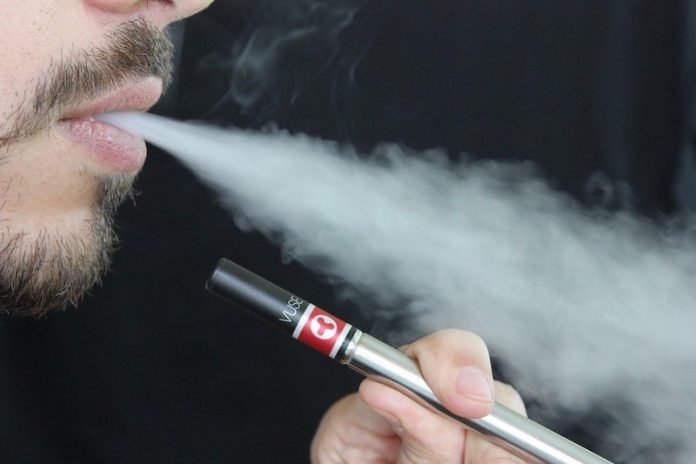
In a new study, researchers found that nicotine can worsen kidney disease in smokers with diabetes and damages kidney filters in these people.
The toxic effects of nicotine on the kidneys’ filtering function are partly responsible for the progression of diabetes-related kidney disease.
The research was conducted by a team at Memorial Sloan Kettering Cancer Center.
Previous research has shown that smoking is a risk factor for diabetes-related kidney (renal) disease and that progression to end-stage renal disease may be prevented by smoking cessation.
However, the channels through which cigarette smoke and, potentially, e-cigarette vapor damage the kidneys in people with diabetes is unclear.
E-cigarettes have become a widespread replacement for combustible tobacco products.
In the study, the team analyzed human kidney cells called podocytes and also studied a mouse model of diabetes.
Podocytes play a crucial role in maintaining the filtering function of the kidneys. The research team treated human podocytes with nicotine.
The research team found higher expression of the inflammatory enzyme and increased oxidative stress in the nicotine-treated human podocytes.
Oxidative stress is a form of cell damage and can play a role in the development of chronic illness.
Nicotine also led to a rise in cell death and decreased the expression of synaptopodin, a protein that helps prevent podocyte damage or death.
The nicotine-treated mice with diabetes also had a reduction of synaptopodin expression.
In addition, the nicotine-treated mice—both those with and without diabetes—had scarring of the glomeruli, the functional unit of the kidneys that filters out toxins.
The team says the findings are particularly relevant given the growing popularity of non-combustible tobacco products, including [e-cigarettes], for nicotine delivery.
One author of the study is Edgar A. Jaimes.
The study is published in the American Journal of Physiology-Renal Physiology.
Copyright © 2021 Knowridge Science Report. All rights reserved.



